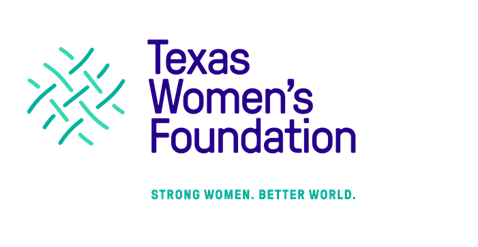Everyone needs access to credit as a part of a healthy family financial plan. Without credit, women and families sometimes turn to payday lending as a way to meet emergency financial needs. According to data from the Texas Office of Consumer Credit, a $500, four-month installment payday loan in Texas costs $645 in finance charges, an APR of 527%, with the borrower ultimately repaying $1,145! This data is part of a recent study by Pew Charitable Trusts showing that Texas is one of the most expensive states for borrowers needing small-dollar loans of this type.
Payday lending and access to credit are an excellent example of how Texas Women’s Foundation works to improve the economic security of women and families in a multifaceted way – in this case using granting, advocacy and gendered investments. First, we have awarded grants to Texas Appleseed since 2014 to advance fair lending practices. This includes the adoption of a unified ordinance that sets basic affordability standards for payday and title loans that protect families from long-term, debilitating debt. This ordinance has been passed by 45 cities and Dallas was one of the first. During this time, the TXWF Board of Directors and staff have spoken and written to elected officials at city councils and Consumer Financial Protection Bureau informing them of the impact of predatory lending on women and families and advocating for protections. Also, advocating for community loan centers that give families an affordable, alternative loan option.
And this spring, through investments. TXWF Investment Advisory committee, led by chair Rachel Vinson, recently approved a new private credit investment as a part of our commitment to put our assets to work for women and girls even before we make grants into the community. This new investment in AIP Alternative Lending Fund 1 invests in lending platforms that can provide access to credit at more attractive terms than may be available through traditional lending channels. Alternative lending considers more than just a borrower’s credit score and income. It also includes information such as expenses, education, work history and home ownership in its evaluation criteria. These platforms allow debt holders to consolidate their revolving debt into unsecured fixed rate term loans so that debt holders can more easily work their way out of debt. Interest rates on these alternative lending platforms are often less than those available through traditional credit cards and avoid the excess fees of payday loans.
This is the power of collective giving and how we use the funds that you entrust to us, to make Texas a better place for all. Texas Women’s Foundation is so grateful for support from the William F. and Patricia L. Miller Family Foundation, TXWF Board Member Tricia Miller, and Miller Family Foundation Executive Director Abby Miller Evans. Their gift in support of our advocacy work helps us continue granting to advocacy partners, like Texas Appleseed, while also providing financial support for our staff that drive this important work.

